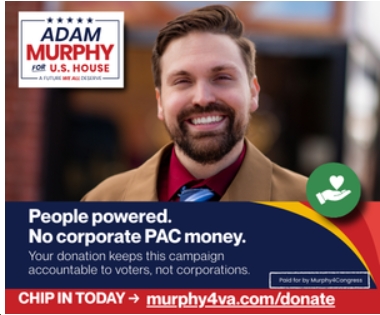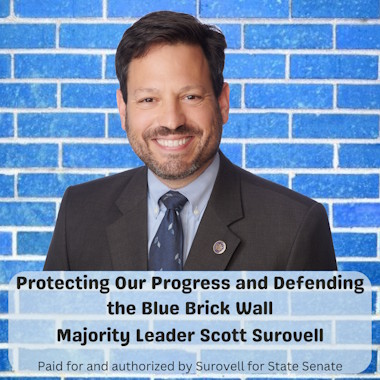The following is from the Charlottesville Climate Collaborative. I’m curious about the details of this, and specifically which tools – Community Choice Aggregation? stricter building codes? a push for electric vehicles in the city? virtual power purchase agreements? other? – they’re using to achieve their goals. I’m all for setting ambitious goals, but we also need serious plans to reach them.
Charlottesville Community Responds to City’s Bold Climate Action Goal
Charlottesville, Virginia – July 1, 2019. The Charlottesville Climate Collaborative, a local environmental nonprofit, applauds the City of Charlottesville’s commitment to the goal of reducing emissions 45% by 2030, and becoming carbon neutral by 2050. Charlottesville is the first city in the Commonwealth of Virginia to announce this ambitious goal of community-wide carbon neutrality, affirming its desire to play alongside frontrunner municipalities worldwide who are addressing the impacts of climate change with the urgency needed to mitigate the most significant consequences of a warming planet.
Charlottesville is closely followed by the Cities of Alexandria, Richmond, and the Town of Blacksburg, all of which have set their own aggressive goal of reducing 80% of their community-wide greenhouse gas emissions by 2050. Outside of Virginia, only nine US cities have reported community-wide carbon-neutrality goals[1] and the Charlottesville community is eager to take on the challenge.
“The Charlottesville Climate Collaborative looks forward to collaborating with community partners and City staff to develop comprehensive plans to reach these ambitious goals,” said Susan Kruse, Executive Director of the Charlottesville Climate Collaborative, “There is a tremendous opportunity for cities to lead the way on climate. As Charlottesville embraces community-wide climate action, we hope that other localities in Virginia and across the nation will join us in making their own bold commitments.”
Community-Wide Responses
City Council
Heather Hill, Vice Mayor, City of Charlottesville – “Climate is one of the most critical issues of our time. The Charlottesville City Council recognizes the need for bold, local action on climate. We look forward to developing a climate action plan that drastically reduces emissions, builds economic prosperity, and is recognized for its commitment to equity and resilience.”
Wes Bellamy, Councilor, City of Charlottesville – “The impacts of climate change are already being felt by low-income citizens of Charlottesville through rising energy costs and increased risks for heat-related illness. Charlottesville is a community that is not willing to wait for federal and state action on climate. I’ll admit, I haven’t always understood the implications of climate change, but I’ve learned that this is clearly an issue that revolves around equity. We can’t say that we are moving towards becoming an equitable city without moving forward with policy specific to addressing the issues around climate change. We are ready to build a climate resilient community, and we are ready to do so now.”
Local Business Leaders
Kelli Palmer, Head of Global Diversity and Inclusion and Corporate Citizenship at CFA Institute – “The City has admirably and responsibly chosen to lead. As a global organization, we are keenly aware of the need for local action to drive global change. CFA Institute is committed to acting sustainably, as evidenced by our LEED certified headquarters and recent alignment with the UN Global Compact. Catalytic impact can be achieved through partnered action by businesses, residents, and the municipality.”
Pete Borches, Vice President, Carter Meyer Automotive – “I believe Charlottesville businesses stand ready for us to support this ambitious goal and lead on climate. Corporate commitment is vital to securing sustainable economic growth and building a healthy, prosperous future for all of us.”
Renewable Energy Sector
Sandy Reisky, Founder, Apex Clean Energy and Generation180 – “This declaration by the City of Charlottesville is consistent with market trends. Wind and solar supply about 10% of the electricity in the U.S. and are growing exponentially. Meanwhile, energy is becoming local and more democratic. Individuals can help lower carbon pollution with solar power and electric vehicles, heat pumps, energy efficiency measures, and increasing awareness in the food and agriculture sectors. All of this is enabled by new products and choices that deliver better value, performance, and convenience, without burning fossil fuels. A healthier, more equitable future is ours to choose.”
Youth Climate Leader
Gudrun Campbell, 11-yr old Co-Organizer of Charlottesville’s Student Climate Strike – “This resolution is important because becoming carbon neutral by 2050 is the kind of bold action that needs to be taken to stop climate change. The youth of Charlottesville are depending on adults to take this kind of action now and in the future.”
Health Care Sector
Jonathan S. Davis, President, Sentara Martha Jefferson Hospital – “Climate change isn’t just an environmental issue —it’s a health issue. That’s why it’s critical that healthcare providers are playing a role in the climate change conversation. Today, Sentara Martha Jefferson is a proud partner with the Charlottesville Climate Collaborative as our community takes a critical step forward in fighting climate change by becoming the first carbon neutral locality in the Commonwealth by 2050.Pollution, unclean water and poor air-quality are fundamental to our health status and can lead to significant health issues ranging anywhere from asthma to cancer. Not only is carbon neutrality the right thing to do, it’s necessary to better protect the health of future generations.”
National Reaction
Mary Anne Hitt, Senior Director of the Sierra Club’s Beyond Coal Campaign – “Thanks to leadership from cities like Charlottesville, our nation keeps moving beyond coal and toward clean energy. This landmark decision will move the Commonwealth — and the country — closer toward an energy system that doesn’t pollute our air, water, and climate. Going carbon neutral isn’t just the right thing to do to stop the climate crisis, it’s also right for Virginia’s consumers and economy. Now, it’s time for other localities to join the effort to ensure the transition to clean energy leaves nobody behind.”
William Barber, III, Ecological Justice Co-Chair of the NC Poor People’s Campaign – “Our cities have waited too long for federal and state action on climate. The majority of climate impacts are already being felt by the poor and communities of color across the country. With this decision, the City of Charlottesville is taking a step in the right direction to deal with climate emissions and protect poor communities and communities of color.”
More About C3
The Charlottesville Climate Collaborative is a non-profit based in Charlottesville, Virginia. Our vision is to build a Charlottesville culture of climate action through community-wide collaborations and programs that reduce climate pollution and advance our Charlottesville identity to include climate leadership. We aim to unify and empower local groups so that together we can achieve a positive impact, making Charlottesville an even stronger, healthier community.
Website: www.cvilleclimate.org | Email: teri@cvilleclimate.org | Twitter: @Cvilleclimate
Instagram: cvilleclimate Facebook: Charlottesville Climate Collaborative
PRESS CONTACT: For more information contact Teri Kent, Director of Programs and Communication, Charlottesville Climate Collaborative, at (434) 466-5157.
Brief Glossary of Emissions Reduction Terms
Climate Action
Advocating and implementing sustainable solutions for reducing greenhouse gas emissions and developing sustainable communities.
Carbon Neutrality and Net Zero Greenhouse Gas (GHG) Emissions
Both terms are synonymous and refer to lowering community-wide greenhouse gas emissions with climate action and utilizing carbon sequestration and/or carbon offsetting to counter remaining emissions.
Zero Carbon Emissions
This term refers to eliminating all community-wide greenhouse gas emissions. This is not the same as Net Zero Emissions or Carbon Neutrality (above) since zero carbon emissions does not include using tools like carbon sequestration and/or carbon offsetting to counter the remaining emissions.
[1]https://data.cdp.net/Emissions/2018-City-wide-Emissions-Reduction-Targets/65hr-r9az


![Wednesday News: “The Grand Opening of an American Concentration Camp”; Trump Threatens to Arrest Mamdani; “Poorest Americans Would Be Hurt By Trump’s Big Bill”; [VA] GOP nominees share stage, but not unity”; “Hoos your daddy, Virginia?” (Not Youngkin)](https://bluevirginia.us/wp-content/uploads/2025/07/montage0702.jpg)














